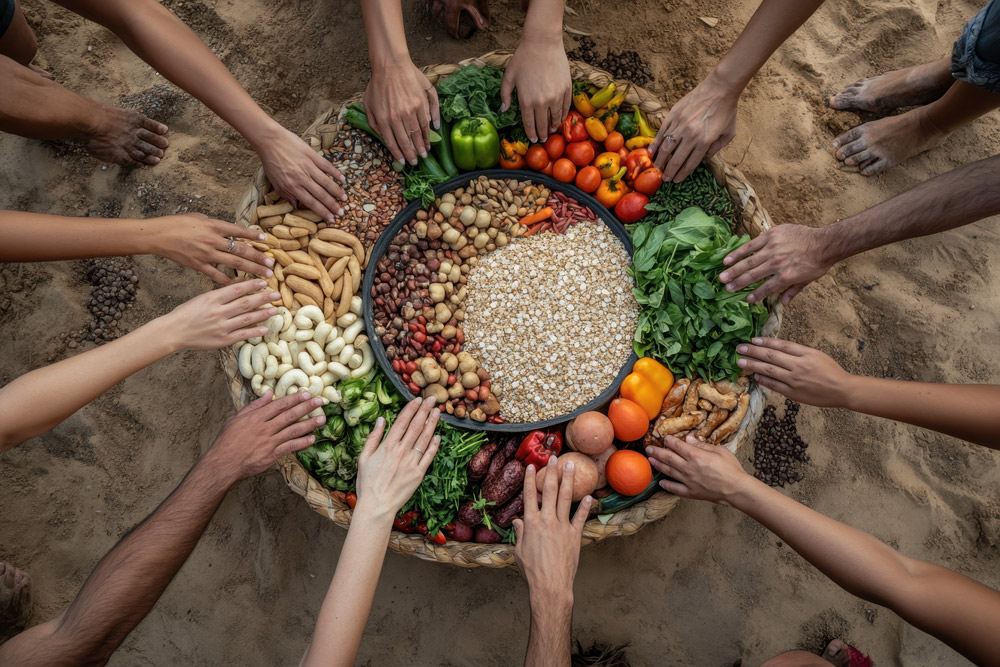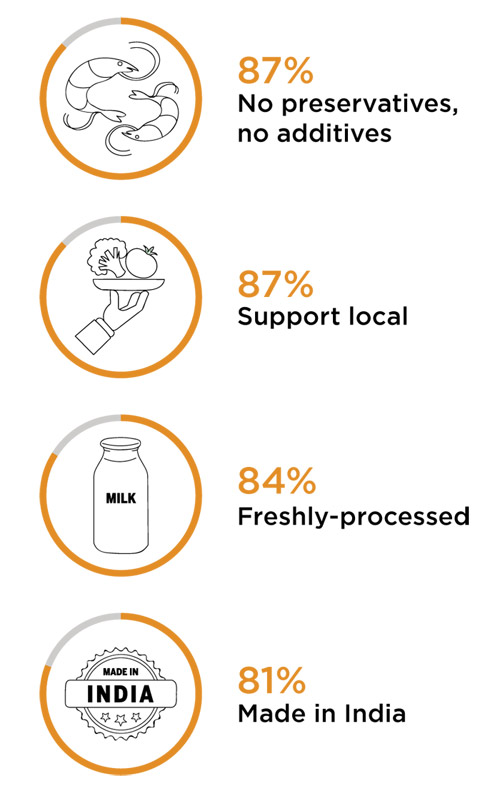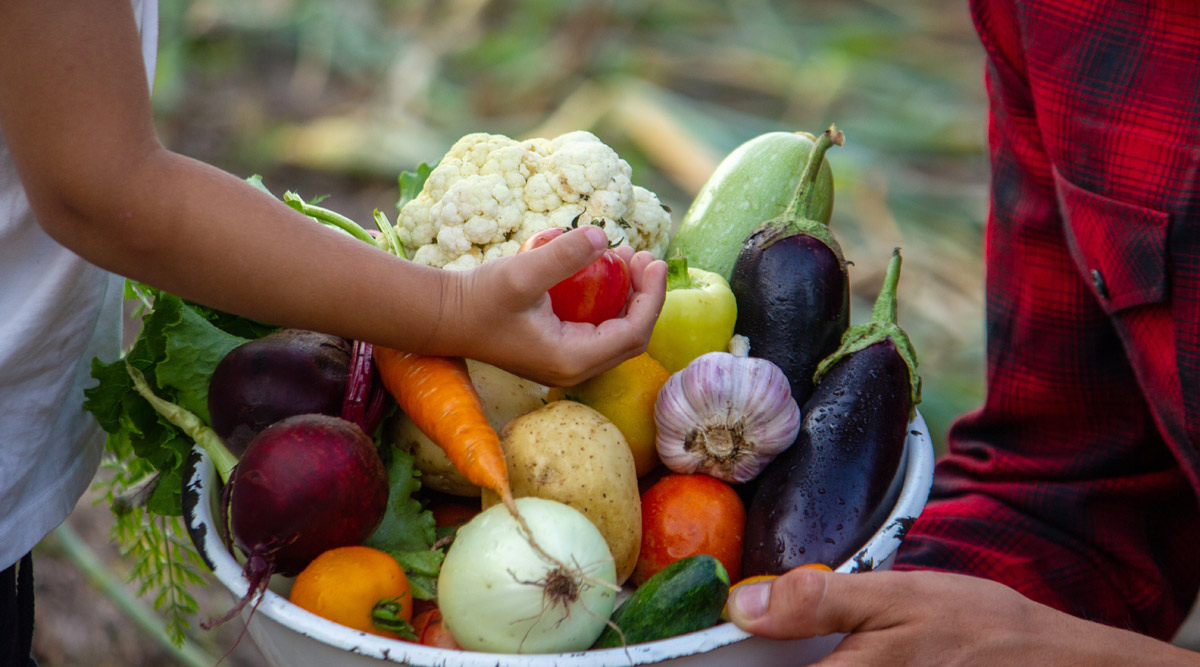The culinarian’s take: The rise of food activism and the conscious consumer
Consumers are shifting from passive buyers to food activists, demanding transparent supply chains, safer ingredients and provenance. Read fresh insights from the Godrej Food Trends Report 2025
When was the last time you protested over… food? No, really, think about it. As absurd as it sounds, the act of protest and to be informed about food is a burgeoning concern among the ‘conscious’ consumers among us. Fittingly so, we’ve reached a critical point in food consumption, and it is now becoming increasingly important to become a conscious consumer. And what’s driving this wave of awareness and activism? Changing consumer behaviour towards safer and transparent food sourcing and preparation, can be one, customers being a bit more aware of the ingredients on the label, another.
This is the key concern that we’re tackling in this edition of culinarian’s take! Last month we looked at how food mavens are rethinking dining out. In this edition, we will look at the wave of rising food activism.

Naturally, we turn to our resident experts on the Godrej Food Trends Report 2025’s panel for answers. While contemplating which product propositions will influence consumer purchase decisions most in 2025, the panel made a clear and near unanimous prediction; favouring products with only natural ingredients with no additives or preservatives.
A growing awareness around food composition, safety and hygiene, combined with greater activism on the social media platforms, is a sign that both regulatory authorities and food businesses will need to find better ways to communicate their commitments to regain consumer trust.
The panel also predicted an increased sense of pride for the Made in India movement, as demonstrated by the growing confidence in our ability to produce high quality, world-class products that are winning accolades and awards. Within this category itself, consumers will especially favour brands that claim to support local farmers, producers and businesses to bring freshly processed products into the market in 2025.
Here’s the breakdown.

What do top chefs and food experts make of India’s growing demand for safer, more transparent food?
Let’s find out.
Transparent supply chains
"Consumers are becoming more aware and prioritising quality and transparency over well-marketed products. Brands of the next decade, regardless of size, would need to focus on a great product mix that offers both, a brand story backed by a procurement story, showcasing openness and transparency," says, Hans Sadhu, the Chief of Operations at Matamaal and the founder of K&M.
Brands building transparent supply chains are known to gain significant consumer trust. Two Brothers Organic Farms (TBOF) uses QR codes on their packaging, allowing consumers to trace a product right back to its source farm. Similarly, Farmley proudly states its direct sourcing model from over 5,000 farmers and producers.
Transparent food supply chains are proving to be a game-changer, ensuring better prices for farmers and higher quality, safer food for consumers.
Finding connection in artisanal foods
Lubna Rafiqi, food enthusiast and café owner at SAGG Eco Village, Kashmir, says, "The growing preference for artisanal, local and traditional food items reflects a desire for authenticity and connection. By choosing foods that carry stories, whether it's a loaf of sourdough crafted by a local baker or spices sourced from a nearby farm, we’re not just buying products; we’re honouring heritage, community and sustainability. In a disconnected world, food serves as a bridge, helping us connect to ourselves through mindful preparation and eating, and our surroundings by supporting local traditions and crafts."
The artisanal movement is flourishing across India, moving from a niche interest to a mainstream preference. This is visible in the soaring popularity of urban farmers' markets and the rise of local brands that celebrate their craft. Think of artisanal cheesemakers like Eleftheria Cheese in Mumbai or Kumaoni Blessings in Uttarakhand, who have built loyal followings for their handcrafted products. Consumers are actively choosing products with a face, a place, and a story behind them.
Hashtags are driving action and accountability
Homechef and Sindhi food advocate, Deepa Chauhan is of the opinion that "Food activism is no longer just a social media phenomenon. In specific cases, the involvement of regulatory authorities has resulted in product relabelling, and sometimes even product roll backs. For example, some state governments have been cracking down on food outlets violating health, safety and hygiene norms, while FSSAI has disallowed food colours and certain additives, especially in street foods where such usage was rampant. These actions are essential to bring back consumer confidence in the quality of food they consume every day."
Rightly so, consumer activism, amplified by social media, is directly influencing regulatory action. In a widely reported move, the Food Safety and Standards Authority of India (FSSAI) recently initiated a major crackdown after a survey revealed that a significant number of branded protein powders had misleading labels and failed quality tests. Viral videos are also causing restaurant closures over unsanitary cooking conditions.
Consumer voices are being heard, and regulatory bodies are being compelled to enforce stricter standards, ultimately benefiting public health.
Rising concerns over food sources, quality, processing methods and transparency, is giving rise to a community of consumer-activists, raising key issues on social media on behalf of the general public. These food ‘activists’ are in turn educating their peers and advocating for transparency and demanding accountability from the industry and policymakers.
What are your thoughts on rising food activism? Is it something you actively partake in? What are some other expert takes you want us to cover? Let us know in the comments!
The expert insights and quotes in this article are credited to the Product Propositions: Consumers section of the Godrej Food Trends Report 2025. To explore more culinary trends shaping India, read the full report here.

